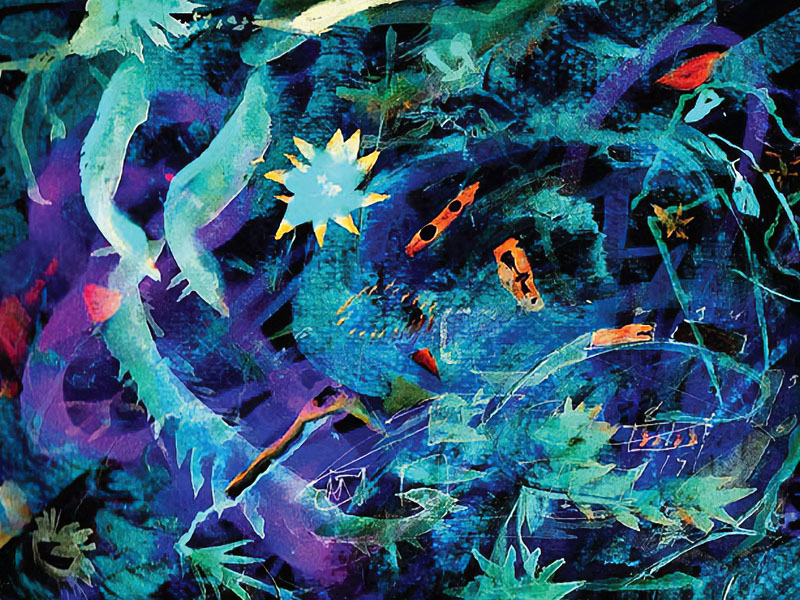The riddle in folklore
Issue 15

abdo barko (Syria)
The riddle is a popular literary form as old as the myth; a riddle is distinguished as a popular art, not merely a series of ambiguous words that form a puzzle.
The paper consists of the following sections:
The riddle’s emergence Morris Field believed that riddles have been formulated since ancient times when primitive humans were attempting to adapt to their surroundings by developing a desire to understand natural phenomena and laws and their own lives.
Riddles in traditional folktales Heritage is rich in different types of riddles, most of which are oral. The Queen of Sheba, Bilqis, challenged Prophet Solomon (peace be upon him) with a riddle when she asked, “What do you say of seven leave and nine enter; two pour out the draught and only one drinks?” Solomon responded, “Seven are the days of woman’s menstruation, nine the months of her pregnancy; her two breasts nourish the child, and one drinks.”
The riddle in ancient Arabic poetry Ancient Arabic poetry and the Arabic poetry of the Middle Ages often included riddles. Riddles in folk stories Some Arabic folktales involve perplexing riddles. Riddles in vernacular Arabic poetry
Vernacular Arabic poetry is replete with riddles that reflect diverse thought patterns, the value of knowledge and the common person’s desire to spend leisure time in educational and entertaining ways. The riddles in vernacular Arabic poetry reflect social, intellectual and environmental issues.
Riddles in Nabati (Bedouin) poetry Riddles appear frequently in Nabati (Bedouin) poetry, one of the oldest forms of vernacular poetry in the Arab world.
Riddles in Ataba (poetry written for Ataba songs) Centuries ago, the islanders of Mesopotamia used to exchange riddles in the evenings; people would pose a riddle in Ataba and others would answer in the same form



































































